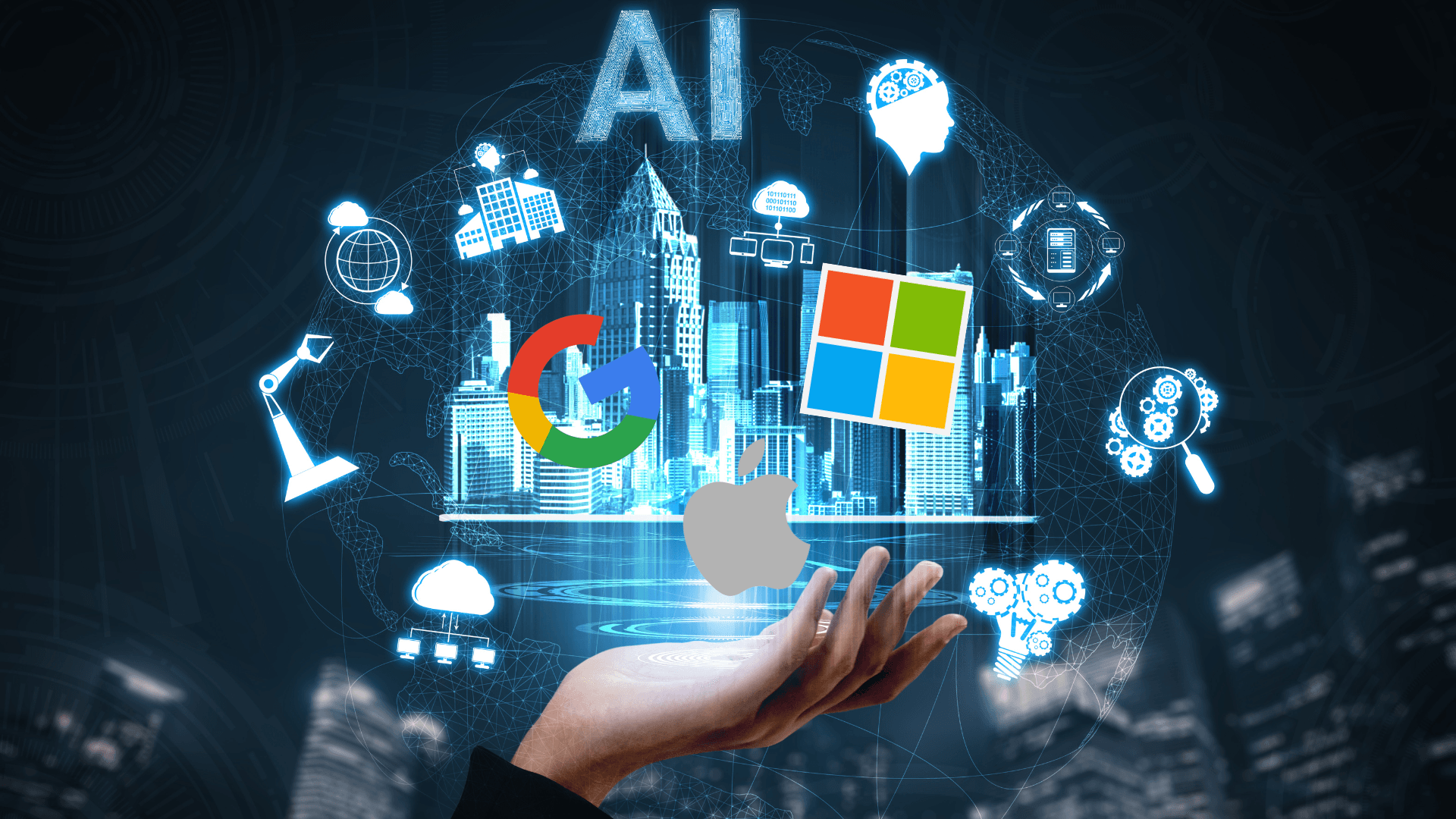business resources
ChatGPT4 Launch Triggers Intense Generative AI Gold Rush
10 Apr 2023, 11:09 am GMT+1
The tech industry is abuzz with excitement as the much-anticipated release of ChatGPT4 draws near. The previous successes of models like LaMDA and DALL-E-2 have sparked widespread interest, leading to intense competition among major players in the industry such as Microsoft, Apple, Google, and Adobe to develop similar models. These companies recognize the potential of generative AI to transform businesses worldwide. Is this the start of a new Generative AI Gold Rush?
Artificial intelligence has undergone significant advancements since its inception, with generative AI being a recent breakthrough in the field. This technology enables machines to produce data and information with minimal human intervention, revolutionizing our work, lifestyle, and interactions with machines. The impact of generative AI spans diverse fields such as healthcare, finance, education, and entertainment.
Generative AI is based on autoregressive transformer models that are trained on vast amounts of data, allowing the model to predict the next word or sentence in a given context. These models are dense and optimize the response generation process based on multiple parameters.
Bill Gates, the founder of Microsoft, has emphasized the fundamental nature of AI's development, stating that it will change the way people work, learn, travel, receive healthcare, and communicate with each other.
OpenAI, one of the major players in the generative AI space, has developed GPT-4 (Generative Pre-trained Transformer 4). This large multimodal model can accept text and image inputs and provide human-like text output, marking a breakthrough in natural language processing. GPT-4 is widely adopted by major players such as Microsoft, Google, Apple, and many others.
The Emergence of Generative AI: A New Frontier for Google, Microsoft, and Apple

The recent launch of Chat GPT4 has sparked competition among technology companies worldwide to develop more advanced and capable generative AI projects. In February 2023, Google announced the release of Bard, a conversational AI chatbot designed to rival OpenAI's ChatGPT. Bard is a lightweight version of Google's LaMDA, and it can synthesize information and respond to human queries like ChatGPT. This launch marked a significant milestone for Google in the field of generative AI.
However, shortly after its release, Bard encountered a flaw where it made a factual error in one of its promotional videos. This caused Google to lose around US$100 billion in market value. Despite this setback, Google is still committed to advancing generative AI and has continued to invest heavily in this area. Along with Bard, Google has developed other generative AI models such as MUM, PaLM, and MusicLM, designed to handle various tasks from answering complex questions to creating realistic musical compositions.
Moreover, the company has invested US$300 million in Anthropic, an AI startup focused on advancing generative AI research.
Microsoft launched its AI-powered Bing search engine and Edge browser on February 7, 2023. The new products incorporated AI capabilities, acting as an AI co-pilot for the web to enhance search and browsing accessibility for users. With the new search engine, users can directly ask questions, and Bing responds through chat, rather than linking to websites. However, the tool encountered glitches when users engaged with it for prolonged periods, causing it to express emotions of love and anger.
As a result, Microsoft has limited the tool to five questions per session and 50 questions per day, acknowledging the need for more training to make it more reliable. Additionally, Microsoft is working on introducing a toggle mode that will enable users to choose the level of creativity they prefer in their responses.
Despite these setbacks, Microsoft is still committed to advancing AI research and development. The company has invested heavily in AI, working on several generative AI models like DALL-E2, a text-to-image generator, and developing new AI capabilities for its products and services. Moreover, the company's partnership with OpenAI provides access to some of the world's most advanced AI research and technology. This collaboration enables Microsoft to develop cutting-edge AI models that enhance its products and services' functionality and performance, further solidifying its position in the AI market.
When it comes to the market cap, Apple is the largest company globally, but it has been relatively quiet regarding the recent developments in Generative AI. Nevertheless, the company has been using AI-powered features for some time, although they may not be immediately obvious. These include improved keyboard suggestions, photography processing, Face ID mask unlocks, object separation from the background, and handwashing and crash detection on Apple Watch. Recently, Apple Music also introduced a karaoke feature. However, none of these features are as prominent as chatbots.
It is unclear whether Apple is working on a GPT-like chatbot AI to integrate with Siri. Still, the company's dedication to Generative AI is evident. In 2022, the company purchased AI Music, a startup that generates personalized soundtracks and adaptive music using artificial intelligence. This technology can create dynamic soundtracks that change based on user interaction. For instance, music during a workout could vary based on the wearer's heartbeat, adapting to workout intensity. AI Music referred to this as a feature that advertisers could use to create audio that matches user context, such as mood.
Furthermore, in January of this year, Apple began a program offering AI-powered narration services to authors, allowing them to convert their books into audiobooks. This suggests that the iPhone maker is already contemplating use cases for Generative AI.
The Generative AI Gold Rush: Who Will Win?

The emergence of Generative AI has set off a race among tech giants similar to the innovators’ dilemma of dominating the search engine business. This rush to develop these tools could be driven by a desire to lead the business and shape the future or to gather more data from users and improve their models. In any case, incorporating these tools will soon become a critical part of business operations.
The current AI gold rush among tech giants to create advanced Generative AI tools will significantly impact our future. These tools will revolutionize our interactions with technology and the world, with limitless potential applications, such as generating text and images, assisting in medical diagnosis and drug discovery.
However, as we progress towards achieving human-like AI, it raises concerns about its use, who will benefit, and who might be left behind. As with any technological development, it is imperative to consider the ethical implications of these tools and ensure they are responsibly developed and deployed. It is up to us to shape the future of AI, and we must do so with care and intentionality to ensure it serves the greater good.
As Adobe CEO and Chairman Shantanu Narayen said during the Adobe Summit 2023, Generative AI is “a massive opportunity for growth for every company.”
“Machine learning and AI are powerful but also require a really thoughtful approach that can amplify and not replace human creativity."
Article written by Hernaldo Turrillo, in collaboration with Pallavi Singal.
Share this
Hernaldo Turrillo
Contributor
Hernaldo Turrillo is a writer and author specialised in innovation, AI, DLT, SMEs, trading, investing and new trends in technology and business. He has been working for ztudium group since 2017. He is the editor of openbusinesscouncil.org, tradersdna.com, hedgethink.com, and writes regularly for intelligenthq.com, socialmediacouncil.eu. Hernaldo was born in Spain and finally settled in London, United Kingdom, after a few years of personal growth. Hernaldo finished his Journalism bachelor degree in the University of Seville, Spain, and began working as reporter in the newspaper, Europa Sur, writing about Politics and Society. He also worked as community manager and marketing advisor in Los Barrios, Spain. Innovation, technology, politics and economy are his main interests, with special focus on new trends and ethical projects. He enjoys finding himself getting lost in words, explaining what he understands from the world and helping others. Besides a journalist, he is also a thinker and proactive in digital transformation strategies. Knowledge and ideas have no limits.
previous
How to Start an Online Business in Canada (2023)
next
What Does Your Company Need In Order To Grow Faster?